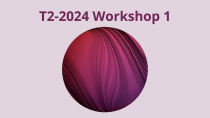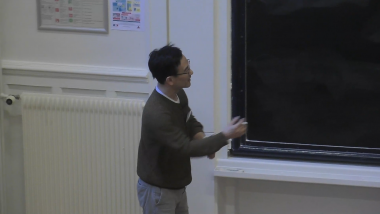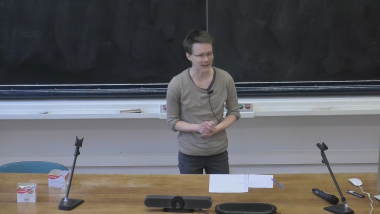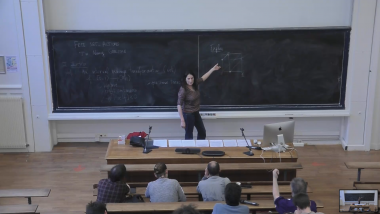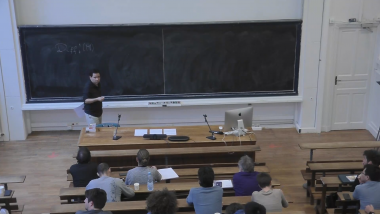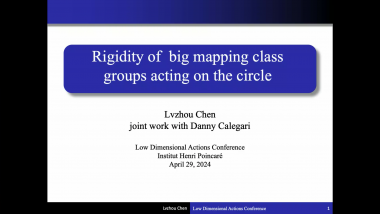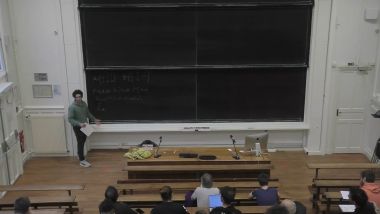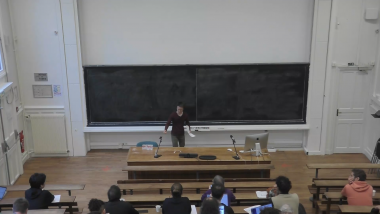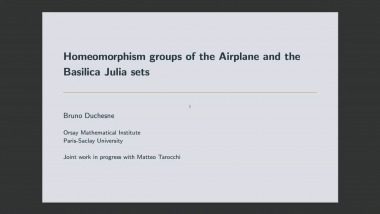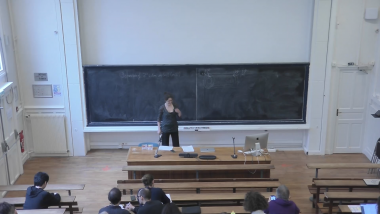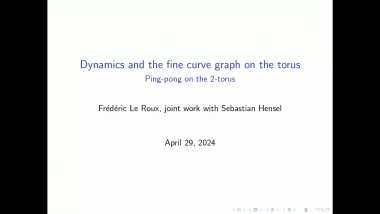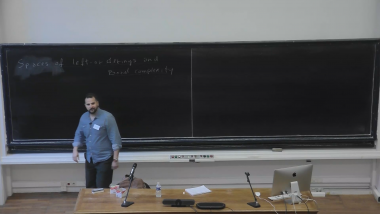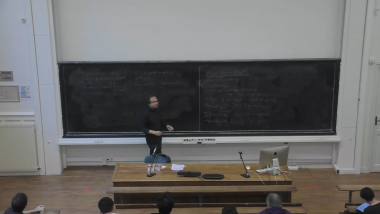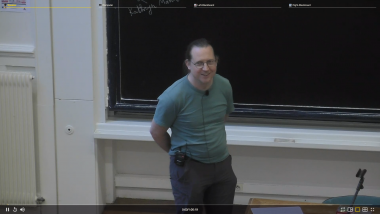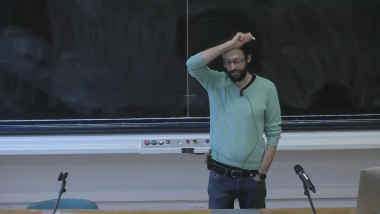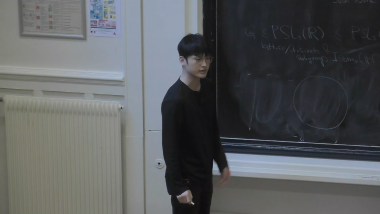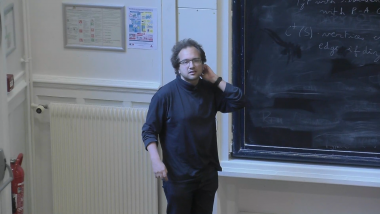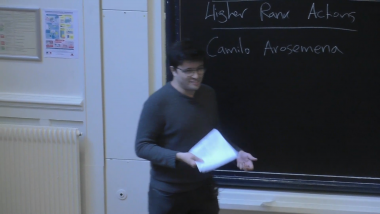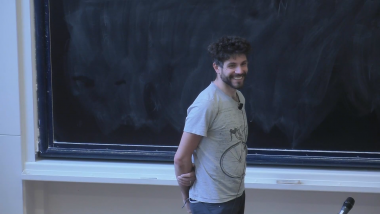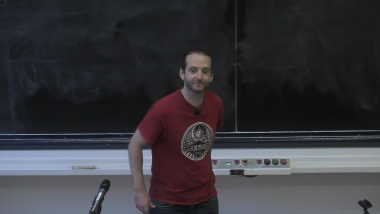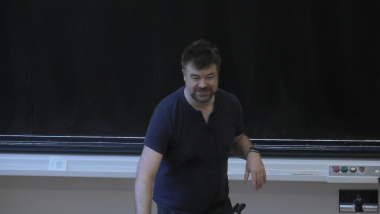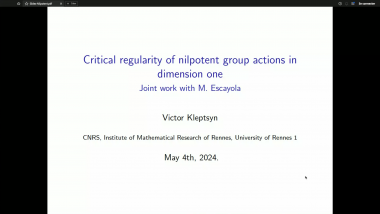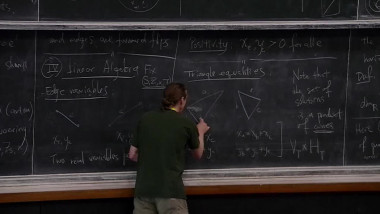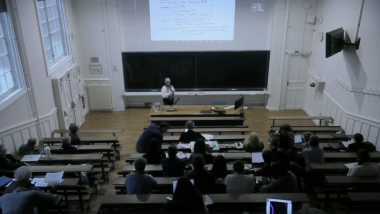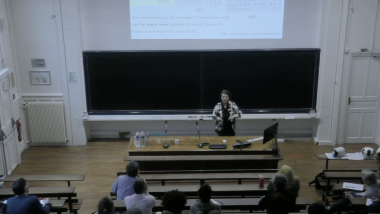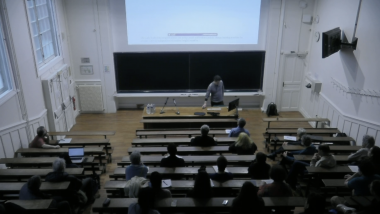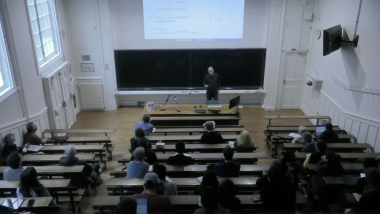Laminations and structure theorems for group actions on the line - Part 1
A lamination of the real line is a closed collection of pairwise unlinked, finite intervals. They appear naturally when studying certain classes of group actions on the line. More precisely, we will discuss actions of solvable groups, and of locally moving groups (these are subgroups of Homeo(R) such that for any open interval I, the subgroups of elements fixing the complement of I acts minimally on I). A famous example of a locally moving group is Thompson's group F. Both classes admit "standard models" of actions on the line: solvable groups act by affine transformations, whereas locally moving groups have their defining actions. We prove a structure theorem which says that any minimal faithful action of a finitely generated group in this class is either standard, or preserves a lamination. Moreover, the large scale dynamics of actions preserving laminations can be described in terms of the standard actions. This has a couple of notable applications: 1) every C1 action is actually semi-conjugate to a standard action; 2) under suitable algebraic restrictions on the group, standard actions are locally rigid. This is based on works with N. Matte Bon and C. Rivas.










